Sydney J. Harris, the 20th-century American journalist and political progressive, famously observed that “the difference between patriotism and nationalism is that the patriot is proud of his country for what it does, and the nationalist is proud of his country no matter what it does …” His words should guide us in how we regard the performance of President Trump over the last several weeks, particularly at the Helsinki Summit and then back in Washington where he subsequently sought to correct the list in our ship of state.
In my 45-year career as a national security professional and Marine Corps General serving my country, I have never seen a moment like the one we are in now. In a very short period of time, President Trump has done enormous harm to our intricate and delicate trading and security partnerships. He has tarnished America’s image as the leader of the free world and exemplar of an enlightened, liberal society. He has discarded America’s traditional role as a positive, transformative force in the world in favor of one focused exclusively on transactions that he perceives (often incorrectly) to be in the nation’s best interests.
From his refusal to endorse the Charlevoix G-7 Communique to the empty fanfare of the North Korea Summit in Singapore, President Trump’s treatment of our allies and adversaries has alarmed national security professionals around the world. Post-Singapore follow-on talks with North Korea have deteriorated rapidly, and the Commander in Chief displayed unforgiveable disrespect to the men and women of our armed forces when he described long-standing joint U.S.-South Korean military exercises as “provocative.” He subsequently described the European Union, which includes some of our staunchest allies, as a “foe” of the United States.
These events provided the backdrop for President Trump’s appearances at the NATO Summit and Helsinki Summit, the outcomes of which have been widely condemned by foreign policy experts across the political spectrum. Even the pessimists among us failed to imagine that a sitting U.S. president would declare on live television that he believed Vladimir Putin’s word over the assessment of U.S. intelligence agencies regarding Russian meddling in the 2016 U.S. elections.
This was, as Brookings Senior Fellow Steven Pifer put it, “perhaps the most embarrassing press conference ever by an American president.” And President Trump’s attempts at retrospective wordsmithing of his comments (“would” versus “wouldn’t”) the following day, cannot undo the damage of that critical moment. Both our allies and our adversaries will long remember this moment in history. The former are now deeply concerned about America’s fitness to lead the free world; the latter are emboldened by the shrinkage of America’s moral space and apparent abdication of its traditional responsibility to push back against illiberal values and the designs of despots.
The president’s new-found expressions of confidence in his intelligence agencies and his late-breaking acknowledgement that Russia meddled in the 2016 election are positive. But in his clarification from the White House, President Trump still persisted in saying actors other than Russia might have been involved in interfering with America’s most sacred act: voting in our democracy.
Should we have been surprised? In retrospect, absolutely not. One of the most unsurprising aspects of the outcome of Helsinki is President Trump’s seeming alignment with Putin on most matters, not the least being their mutual and often-expressed conviction that the U.S. is responsible for the state of the U.S.-Russia relationship. President Trump’s mantra since the earliest days of the presidential campaign in 2015 has been to extol Vladimir Putin as a decisive and admirable leader, and to personally shoulder the task of repairing the U.S.-Russia break.
The president’s repeated aversion to acknowledging Russian interference in the 2016 election, his unwillingness to call out Russia’s very worrisome pre-conflict cyber reconnaissance of America’s critical infrastructure, as well as his denigration of our country’s investigative authorities, are pieces of a wider pattern of attacks on the rule of law that risks imperiling our system of democracy. This is dangerous in its own right, and as Brookings Senior Fellow Constanze Stelzenmüller has pointed out, is exposing a cleavage at the very heart of the alliance that established and maintained American leadership and international peace since World War II. Indeed, the president’s performance these last several weeks is creating chaos and accelerating the disintegration of this very world order, a world order hated by Vladimir Putin and his ilk. And I’ll note this structure, which has kept the peace and brought unprecedented prosperity for the world was bought and paid for—and sustained to this very moment—with the blood of the young men and women of America’s armed forces and those of our precious allies.
Brookings scholars are working closely with parts of the administration staffed by patriotic civil servants to advance ideas and policy that serve our country’s interest, and advance a more peaceful and more prosperous world. That work will continue. The Brookings Institution is proud to be independent and nonpartisan, but we are not neutral in our values: support for temperate, civil discourse; healthy debate, and rigorous scholarship grounded in facts. We at Brookings are proud to help lead the public discussion on the way forward, and I invite you to watch the webcast of our panel discussion this Thursday on recent developments in Europe and the trans-Atlantic relations, including the NATO and Helsinki Summits, and to participate in the conversation on Twitter using #USEurope.
As we move forward from this moment of inflection, we would do well to recall Sydney Harris’ perspective on where we should stand as citizens. Now is not the time for a blind nationalism that validates any act or any word by the president of the United States. Now is the moment for an informed and self-critical patriotism that embraces the central tenets of our Constitution and holds dear the precious principles of democratic governance and the values of America.
The Brookings Institution is committed to quality, independence, and impact.
We are supported by a diverse array of funders. In line with our values and policies, each Brookings publication represents the sole views of its author(s).

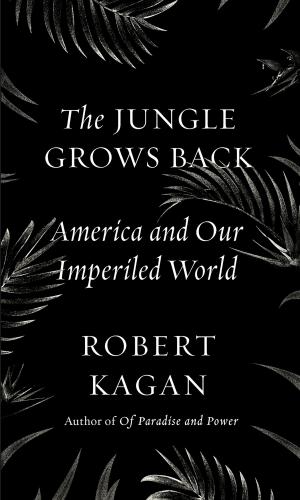
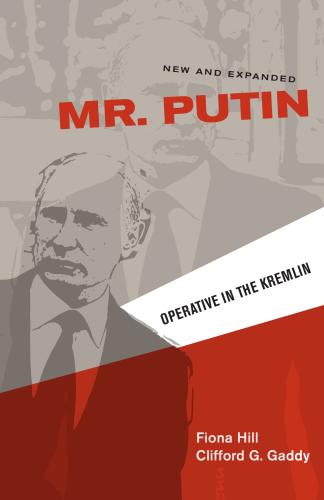
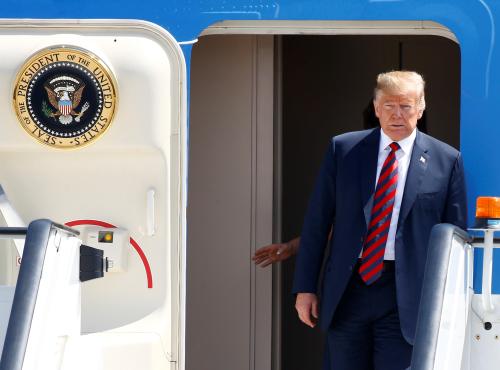
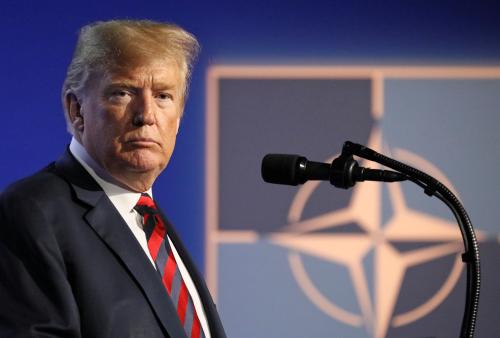
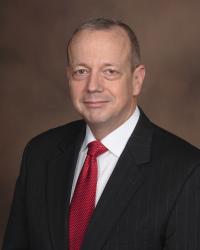



Commentary
Chaos from order
July 18, 2018